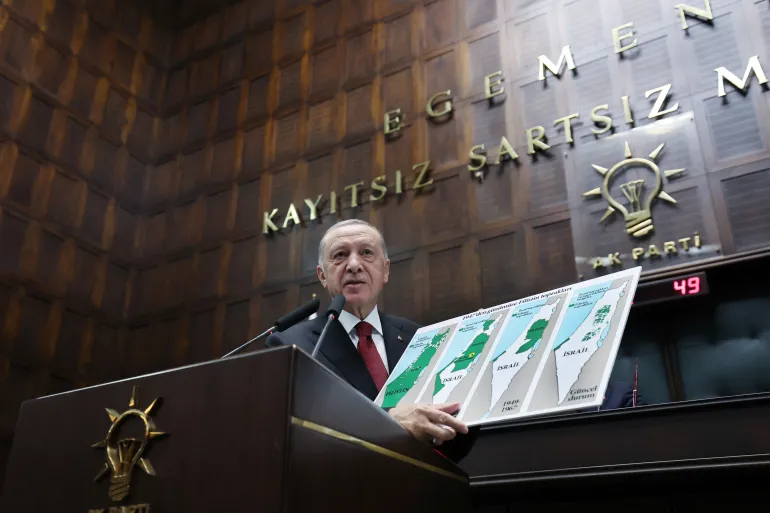In recent times, geopolitical tensions have soared in different corners of the globe, from the incessant rockets in Gaza to the booming artillery in Eastern Europe. Amid these tumultuous times, Turkey’s President Recep Tayyip Erdogan emerges as a key player, threading a complex web of diplomatic, economic, and political interests. His actions and messages regarding the Israel-Hamas conflict, as well as the Russia-Ukraine war, reflect a deliberate maneuver to re-calibrate Turkey's stance on the global stage.
Erdogan's unyielding support for Palestine is not a newfound stance. His rhetoric against Israel during the recent Gaza conflict reaffirms a longstanding allegiance to the Palestinian cause, which resonates well with his domestic base. The massive pro-Palestinian rally in Istanbul, where Erdogan vehemently criticized Israel and the West, was not merely a spur-of-the-moment event. It was a calculated move to galvanize public sentiment and position Turkey as a staunch supporter of Palestine amidst the wider Islamic world.
However, the ripple effects of Erdogan's words and actions extend beyond the Middle East. His criticism of the West's inaction highlighted a growing discord between Turkey and its NATO allies. Moreover, Erdogan’s comparison of the Gaza conflict with the Russia-Ukraine war during a pro-Palestinian rally reveals an attempt to draw parallels between disparate geopolitical crises, possibly to underscore perceived Western inconsistencies.
When the artillery shelled across the Ukrainian sky, Erdogan faced a diplomatic quandary. Turkey shares a lucrative economic relationship with Russia, a critical aspect Erdogan could not overlook. Despite condemning Russia's aggression, he strayed from joining the global choir of sanctions. Instead, Turkey offered itself as a mediator, a move reflecting a desire to carve out a unique diplomatic niche while safeguarding economic interests. The Russia-Ukraine war presented an avenue for Erdogan to rekindle Turkey’s historical influence in the Eurasian region, an endeavor intertwined with his government's ideologically driven aspirations of Pan-Turkism and Islamism.
The intertwining of Erdogan's reactions to both conflicts demonstrates a high-stakes diplomatic balancing act. On one hand, Erdogan's stance on Gaza solidifies Turkey's position in the Islamic world, but on the other, it risks straining relations with the West. Similarly, his maneuvering in the Russia-Ukraine crisis seeks to uphold Turkey's economic interests and regional influence while navigating the choppy waters of international diplomacy.
Erdogan's diplomacy amidst these global crises exemplifies a broader narrative of Turkey's evolving geopolitical strategy. However, the intricate dance between appeasing domestic constituencies, fostering regional alliances, and maintaining international relations presents a complex challenge. As the reverberations of Erdogan’s actions echo through the diplomatic corridors, the consequential effects on regional stability and Turkey's global standing remain to be fully unraveled.
Erdogan's geopolitical tightrope, amidst the cacophony of global conflicts, symbolizes the nuanced, yet precarious, path Turkey treads in an increasingly polarized world.









